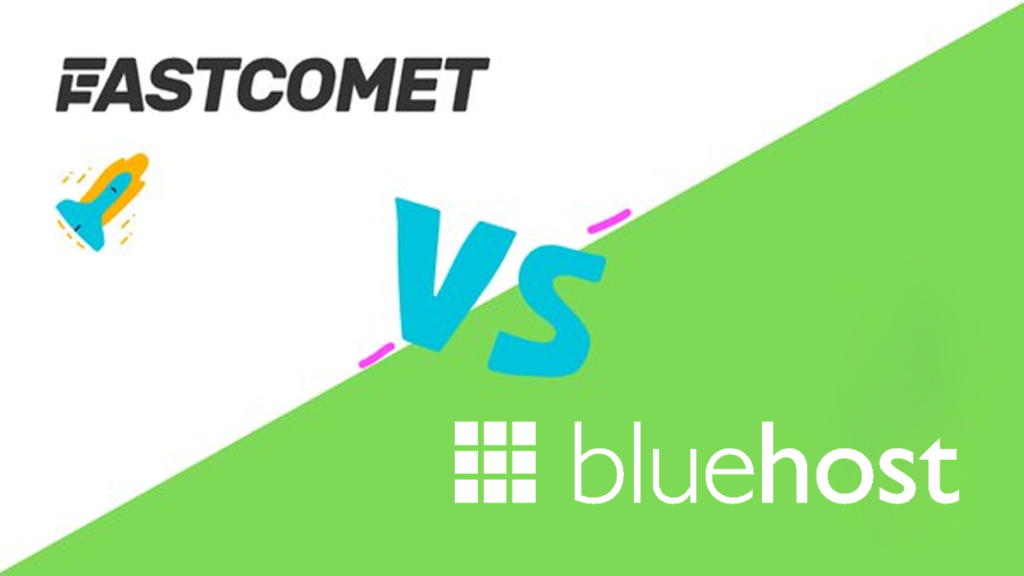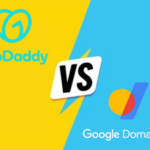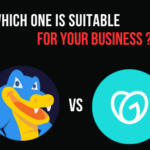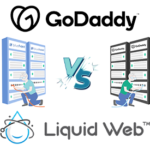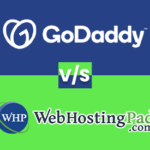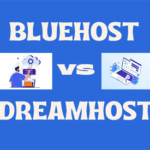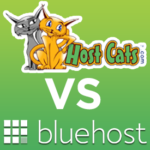Bluehost vs FastComet? We’ve got you covered. From the start, it’s important to note that both web hosting providers are excellent options. This comprehensive and impartial review is crucial to helping you make an informed decision.
We’ll compare these web hosts head-to-head, providing you with all the essential statistics and information you need to make the right choice. Toward the end of this review, we’ll also share our expert opinion on the superior web host. While you’re not obligated to agree with us, given that you approach this rationally and our verdict is based on solid data, you’ll likely find our reasoning sound.
Bluehost vs FastComet Overview
If you’re looking for a new web host, you’ve come across the name Bluehost. Bluehost likely stands as one of the most widely recognized web hosting providers worldwide. But does their popularity align with the quality of their services? We’ll delve into that shortly.
Having been established in 1996, Bluehost boasts considerable tenure in the industry, making them something of a veteran. With a staggering 2 million subscribers, they possess a customer base that many web hosts aspire to achieve. Additionally, their official endorsement by WordPress carries significant weight. Bluehost is renowned for being a beginner’s ideal choice, thanks to its user-friendly, customized cPanel interface. Moreover, they deliver commendable performances.
In contrast, FastComet is a smaller-scale company, serving around 45,000 customers across 83 countries. Headquartered in San Francisco, the company operates servers in eight locations: London, Amsterdam, Singapore, Chicago, and Tokyo. The fundamental principle here is that proximity to a server leads to faster connections. Given FastComet’s extensive server network, we anticipate competitive speeds on average.
Performance
FastComet operates through an extensive global network of servers, with data centers strategically located in the U.K., the Netherlands, Singapore, Japan, Germany, and the U.S.A. In contrast, Bluehost exclusively utilizes servers based in the U.S.A.
All of FastComet’s plans utilize SSD storage, a feature not consistently offered by Bluehost, which only incorporates SSD in specific plans. SSD storage significantly enhances website loading speed and overall performance compared to traditional HDD storage.
Additionally, both providers offer a performance-boosting feature, a Content Delivery Network (CDN). This system enhances website loading speed by distributing content across a global network of cloud servers. While FastComet includes a free CDN with all its plans, users can also avail of up to 90% discount using Bluehost coupon codes in their popular web hosting plans.
FastComet confidently guarantees a 99.9% uptime, while Bluehost commits to a slightly lower 99%. It’s worth noting that they experienced occasional dips below their promised uptime in our tests. Conversely, Bluehost met and surpassed FastComet’s 99.9% uptime pledge.
Pricing Plan
Bluehost offers a variety of hosting plans, but for our evaluation, we’ll focus on their shared hosting options since it’s the most common type of hosting. They offer four shared hosting plans: Basic, Plus, Choice-Plus, and Pro.
The Basic plan is priced at $2.75 per month (with a renewal cost of $7.99 per month) and includes the following features:
- Hosting for 1 website
- 50GB of storage
- Unmetered bandwidth
- Free SSL certificate
- 1 domain
- 5 parked domains
- 25 subdomains
FastComet, on the other hand, provides three shared hosting plans: Fastcloud, Fastcloud Plus, and Fastcloud Extra. They often apply substantial discounts to initial purchases (up to 70% off), a common pricing strategy in the industry, although renewal prices typically increase significantly.
The Fastcloud plan is available for just $2.95 per month (with a regular price of $9.95 per month after applying a 70% discount). This plan includes:
- Free domain registration
- Hosting for one website
- 150GB SSD storage space
- Unmetered traffic
- 2 CPU cores
- 2GB RAM
- One free website transfer
- Unlimited parked domains
- Unlimited subdomains
Security
FastComet’s plans encompass a comprehensive array of security features, including 24/7 server monitoring, a network firewall, a Web Application Firewall (which guards against DDoS attacks), brute-force protection, exploits and malware safeguarding, hotlink and password protection, BitNinja Server Security, Two-Factor Authentication (2FA), CageFS Security, and ModSecurity Manager.
In contrast, Bluehost offers most of its security features as optional paid add-ons. These include SiteLock, CodeGuard, and spam protection.
FastComet operates all of its Linux-based shared servers on the CloudLinux OS. This system securely isolates each account on a shared server, protecting against breaches by other users and ensuring equitable allocation of server resources. Bluehost employs a similar system, resource protection, for fair resource allocation.
FastComet vs Bluehost both provide free SSL certificates with all plans. However, only FastComet offers automatic daily backups, while they are available as an optional paid add-on for higher-tier plans with Bluehost.
Ease of Use
Bluehost truly lives up to its legendary status regarding user-friendliness, especially for beginners. It employs cPanel, the most widely used and beginner-friendly backend interface. Moreover, Bluehost has customized its cPanel further to ensure it is exceptionally easy for newcomers to navigate. The sign-up process with Bluehost is also incredibly straightforward.
Bluehost also provides a range of applications, including WordPress, Drupal, and Joomla. For eCommerce enthusiasts, Bluehost offers access to over 100 website themes and templates. You can rest easy knowing that Bluehost supports over 8 popular eCommerce software options, ensuring compatibility with your chosen shopping cart.
Similarly, FastComet adopts the widely favored cPanel interface, ensuring users feel energized when navigating the backend. Opting for Fast Comet’s servers grants you access to 450+ one-click installations, 20+ framework development tools, and step-by-step guidance for website creation.
Transferring your domain to FastComet is complimentary, including free site migration—a service for which Bluehost charges $149.99. Get a free one-year domain registration with the FastComet discount offer.
While user-friendliness may be subjective, based on our experience, we encountered fewer issues with Bluehost than with FastComet. As such, in our assessment, Bluehost emerges as the preferred choice.
Final Verdicts!
Undoubtedly, this was a difficult duel. There were intense strength competitions between the two web hosts in some areas, while they excelled in others. However, we must declare a winner and offer our judgment. We were impressed by Fastcomet’s longer-than-usual money-back policy and virtually nonexistent chat room wait times. But in the end, Bluehost pleasantly surprised us and won us over with excellent performance and competitive pricing.


